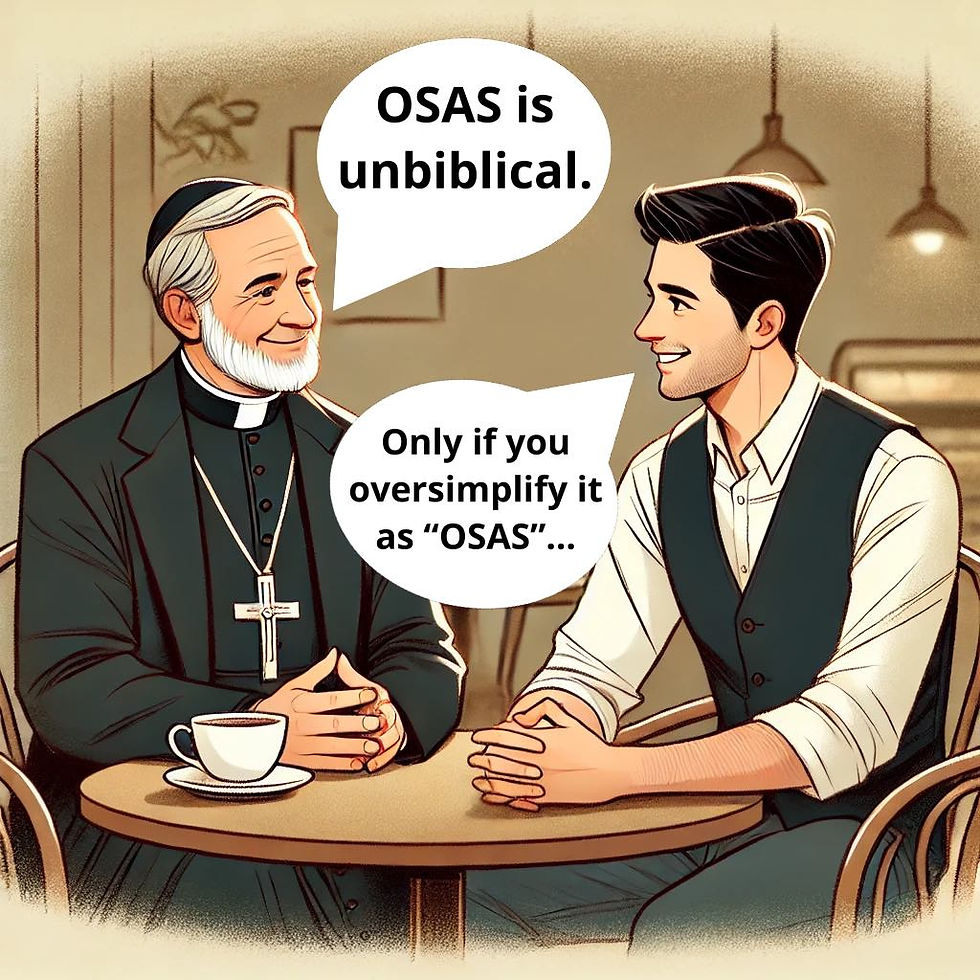Calvinist Universalism accusation backfires
- Bible Brian

- Dec 21, 2022
- 2 min read
Updated: Aug 1, 2023

One of Calvinism's stranger arguments is to assert that you are either a Calvinist, or a Universalist. Universalism is the belief that ultimately, everyone will be saved. This, they suggest, is the inevitable conclusion from the belief that God both wants all men to be saved (1 Timothy 2:4), and that Christ makes propitiation for the sins of the whole world (1 John 2:2).
Of course, as I just rather easily showed, God does want all men to be saved and come to the knowledge of the truth, and Christ is the propitiation for the sins of the whole world. That is what scripture explicitly says. Therefore, if the logical conclusion of these two facts is Universalism, then Universalism is true. However, since scripture does say these things, yet denies Universalism, Universalism cannot be the logical conclusion.
But Calvinists face their own Universalism problem. They interpret statements like "...you were dead in the trespasses and sins" (Ephesians 2:1) to mean you are incapable of choosing obedience, and that when God "...made us alive together with Christ..." (Ephesians 2:5), He actually compelled us to come to faith. These are the doctrines of Total Depravity and Irresistible Grace, both of which, when combined, necessarily lead to the most anti-Universalist doctrine imaginable, Limited Atonement.
However, one thing Calvinists fail to take into account is that a time is coming when confession of Christ genuinely will be irresistible. "For it is written: “As I live, says the Lord, Every knee shall bow to Me, And every tongue shall confess to God.”" (Romans 14:11). Now, if to be dead in trespasses means to be unable to confess Christ, and to be made alive means to be compelled to confess Christ, then when Romans 14:11 comes to pass, everyone will be made alive. But that's Universalism...
Of course, in context, we know that when every tongue finally confesses to God, those who failed to do so during their lives will be judged according to what they have done, and thrown into the lake of fire, the second death.
But there is a way to remedy this apparent contradiction, and that is to understand "death" in terms of separation. As James says, "For as the body without the spirit is dead, so faith without works is dead also." (James 2:26). When the spirit is separated from the body, the body dies. When the works are separated from the faith, the faith dies. So what does it mean to be dead in trespasses? To be pre-programmed, like a robot, to reject the Gospel at every possible opportunity, unless God happens to make you alive? This doesn't seem to fit well with the countless scriptures supporting man's free will. It seems more likely to me that to be dead in our trespasses means to be cut off from God, destined to suffer His everlasting wrath. How does He make us alive again? By fixing that separation.
To conclude, therefore, we could play this silly game where we accuse everyone who disagrees with us of being a Universalist, but since none of us actually are Universalists, it seems foolish at best. At worst, it is dishonest. Let us instead take each other's positions as we find them, and unite under Christ, who saves us.






Comments